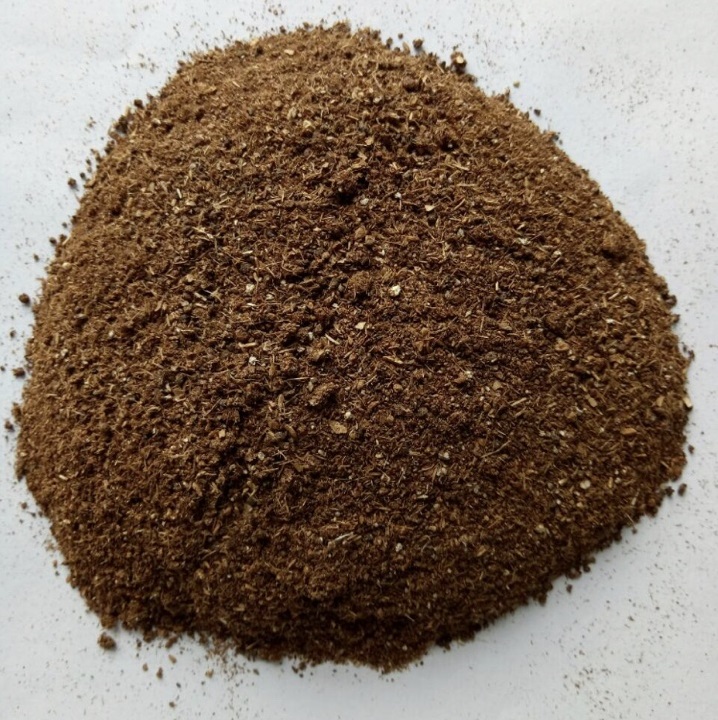Cashew Husk is a byproduct of the cashew nut harvesting process. The nuts, which are rich in oil and protein, are processed into a variety of foods and other products. Upon processing the nuts into various products and after the removal of the shells and kernels, the leftover cashew husk is often discarded. However, Cashew Husk holds much value and can be utilized for many purposes. It can be used as animal feed as it is high in fiber and nutrients, such as protein and oil. It also has the ability to improve the soil quality for crops such as rice and corn, particularly for rice paddy cultivation. In addition, it can be used for water purification processes.
A - TYPE: CASHEW HUSK

• Size: 5 - 10 mm
• Moisture: 15% max
• Impurity: 1% max
• Dust: 5% max
• Ash: 2% max
• Admixture: 1%
• Capacity: 300 tons per month
B - TYPE: CASHEW HUSK POWDER

• Stype: Dried Powder
• Size: 0.1 - 3 mm
• Moisture: 12% max
• Dust: 5% max
• Ash: 2% max
• Impurities: 1% max
• Foreign matter: 0.5% max
C - TYPE: WASTE CASHEW NUT SHELL

- Moisture: 13% max
- Ash content: 2 - 4%
- Burning time: 20 to 40 minutes per kilogram
- Calorific value: 4500 to 5000 kcal/kg
- Sulfur: 0,5% max
- Bulk Density: 150 to 300 kg/m³
- Fixed Carbon: 20% min
- Volatile matter: 65% max
- Storage: Store in a cool, dry, ventilated area.
- ShelfLife: 24 months
PACKING & DELIVERY
Packaging: 20-50kg/flexi bag or 500-600kgs/jumbo bag or loose bulk loading or according to customer's requirement. 28 MTs/container 40'HC
Delivery: 7 - 10 days after receiving deposit or L/C at sight.
Cashew nut shell residue, also known as waste or cake, refers to the fibrous material that remains after the extraction of cashew nut shell liquid and cashew kernels (cashew oil). In the field of agriculture, this residue can be utilized as organic mulch or compost to enhance soil structure and nutrient content. Additionally, it can be used as a supplement for animal feed, providing a source of roughage and essential nutrients. Due to its flammable nature, cashew nut shell residue can be easily combined with wood chips and other combustible materials to increase the heat in boilers. As a result, it is frequently employed as a fuel alternative to coal, firewood, and rice husks. In certain cases, further processing of the residue can extract additional compounds such as tannins, which find applications in industries like leather processing and wood preservation.
